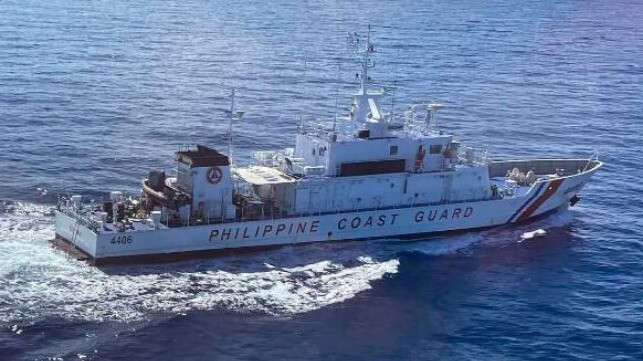Philippine Coast Guard Builds Monitoring Station on South China Sea Island

The Philippines Coast Guard is inaugurating a new station located in the western reaches of the disputed Spratly Islands which is designed to enhance its monitoring capabilities in the South China Sea region. The completion of the station, which will be officially commissioned in early 2024, came as coast guard officials reported a further increase in the Chinese presence in the disputed region.
The new station is designed to replace one that was lost during Super Typhoon Odette in December 2021. The storm severely damaged much of the small island which is a critical piece of the Philippines' strategy to occupy and claim sovereign rights over the area in the South China Sea. The Philippines has occupied the island with a small outpost of approximately 250 people since 2001, but said after the typhoon two years ago only the flag pole remained from the prior monitoring station.
PCG Commandant, CG Admiral Ronnie Gil L Gavan, during a dedication ceremony on Friday, December 1, said the new state-of-the-art systems in the station will “significantly enhance the PCG's capability to monitor the movements of foreign maritime forces, as well as public vessels and aircraft.” In addition, the station will provide monitoring and support for vessels that might be in distress and be available to provide information to merchant ships passing through the busy area.

The new station in the western reaches of the disputed area will provide enhanced monitoring capabilities (PCG)
The station is located on an island that the Filipinos call Pag-asa located to the north and west of the Second Thomas Shoal which has been the center of the interactions between Chinese vessels and the Philippine Coast Guard. The island which is internationally recognized as Thitu is about 300 miles west of the main body of the Philippines. It is the second largest of the natural islands in the region, but it small outcropping at approximately just 90 acres. However, it is one of nine places where the Philippines maintains a presence in the contested outcropping. It is also seen as playing a key role in President Marcos’ declared strategy to “not give up a single square inch of our territory.”
The new station is housed in a three-story building which the Philippine Coast Guard describes as a “weather resilient structure.” Known as Coast Guard Station Kalayaan, it will have advanced maritime domain awareness technology such as radar, automatic identification, satellite communication, coastal cameras, and vessel traffic management.
The Philippines has also enhanced other elements on the island, including introducing cellphone and internet service, enhancing the power and water supply, and a new cement runway for the small airport. They also expanded the wharf area as well as providing better buildings and facilities for the residents.
Speaking during the dedication ceremony, National Security Adviser Eduardo Ano highlighted the presence of the Chinese in the region saying their actions are “gray-zone tactics” which he reported as they “are pure bullying.” He expressed pride in the new station and its capabilities.
The efforts to expand the monitoring capabilities came as the Coast Guard Commodore for the region called the Chinese presence “alarming.” He reported that the PCG had deployed two patrol boats to the nearby area that the Philippines calls Julian Felipe Reef on December 2. The Commodore in a statement said that the Chinese presence is now estimated to have reached 135 vessels up from 111 a month ago.

that matters most
Get the latest maritime news delivered to your inbox daily.
The PCG reported that the Chinese vessels were scattered and dispersed while confirming that there had been no interaction between the Filipino patrol boats and the Chinese. The two patrol boats issued warnings to the Chinese but received no response on Saturday.
The Philippines said it would continue patrols through the area which is only about 20 miles from the new monitoring station.
